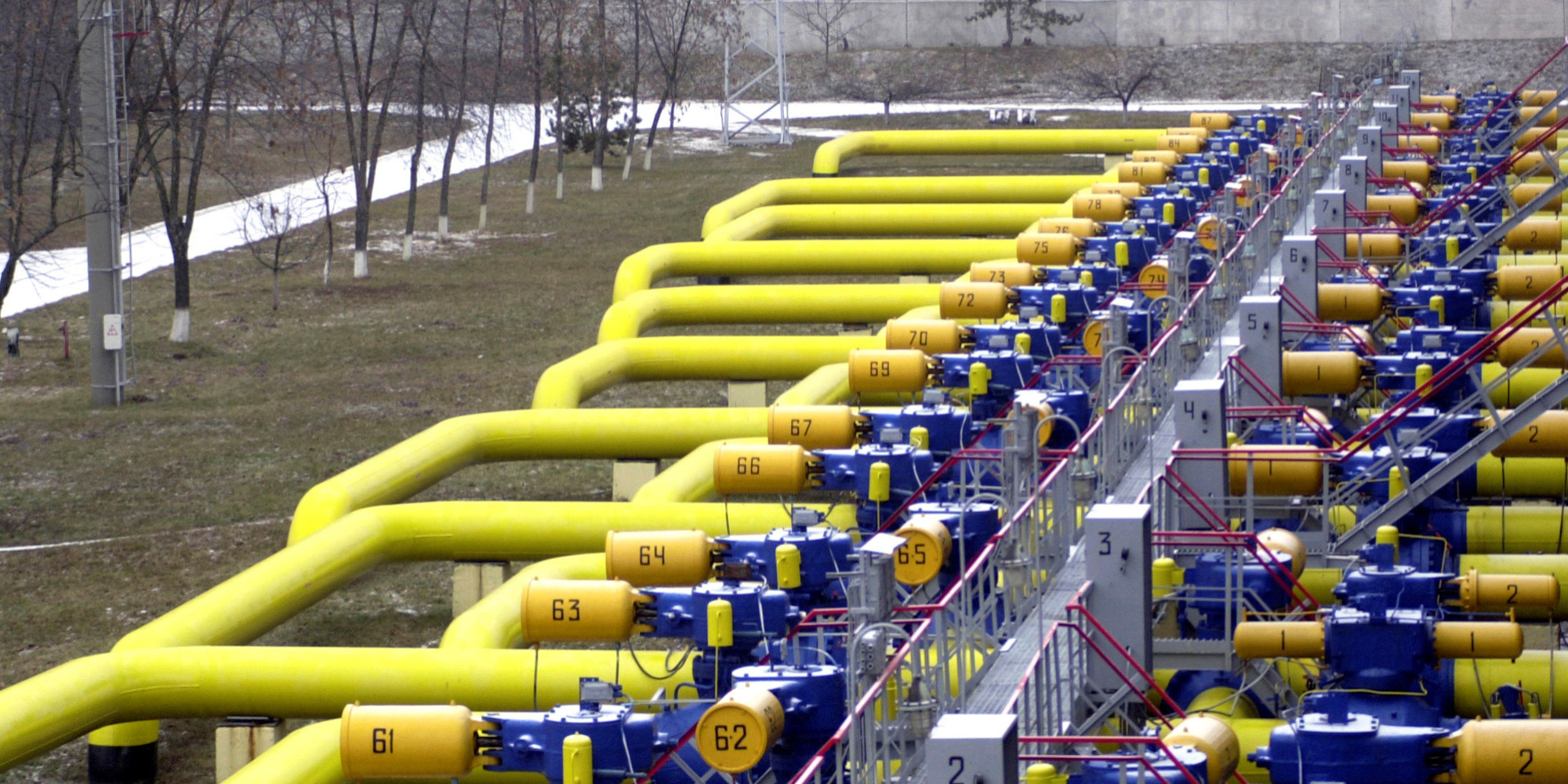
IMF Approves $17 Billion Loan for Ukraine
Publication: Eurasia Daily Monitor Volume: 11 Issue: 88
By:

On April 30, the board of the International Monetary Fund (IMF) approved a new $17 billion loan for Ukraine, which will be disbursed over two years. Ukraine received the first tranche of this loan, equaling $3.2 billion, on May 6. The government will be able to use the assistance from the IMF along with other international pledges of financial support to pay its natural gas debt to Russia. However, Kyiv has said it would pay the debt only if Russia cut its price.
Ukraine is living through its second economic crisis in six years. When GDP plunged 15 percent in 2009, the IMF also came to rescue. However, two IMF assistance efforts derailed in 2009 and 2011 due to the populist policies of the then prime ministers, Yulia Tymoshenko and Mykola Azarov, respectively. By the end of 2013, Ukraine was simultaneously running current account and budget deficits as well as supporting an unsustainably high exchange rate of the national currency, the hryvna. Meanwhile, central bank reserves became depleted, and economic growth stopped. The IMF was reluctant to help mainly because Kyiv, apparently fearing popular unrest ahead of the presidential election, which was then scheduled for early 2015, refused to increase household gas prices (https://www.pravda.com.ua/news/2013/11/22/7002718/).
Russia stepped in last December with a $15 billion loan offer and a gas price cut in exchange for Kyiv’s refusal to sign an association and free trade deal with the European Union. However, after the Ukrainian government changed last February, Russia withdrew its assistance, increased its gas price by 81 percent to $485 per 1,000 cubic meters from April 1, invaded Crimea, and stoked separatist tensions in Ukraine’s industrial heartland. In this situation, Kyiv had no choice but to accept the IMF’s conditions. The IMF program also unlocks billions of dollars in assistance from the broader international community, mainly the EU and the World Bank, over the next two years. This month alone, the government expects to receive $2.7 billion from abroad on top of the IMF loan tranche. The international assistance package is likely to reach $27 billion during the next two years (https://espreso.tv/news/2014/05/07/v_travni_ukrayina_otrymaye_59_mlrd_zahalnoyi_finansovoyi_dopomohy___minfin_ssha).
To qualify for the IMF loan, Kyiv promised to: 1) keep a flexible exchange rate regime, which was introduced in early February, so the hryvna has lost around a quarter of its value, helping the government to narrow the current-account gap; 2) conduct stress tests and approve international regulatory standards for banks weakened by the economic and political crisis; 3) cut the budget deficit, which will entail public sector wage freezes and gas price hikes; 4) reform the energy sector; and 5) conduct structural reforms to improve the business climate and curb corruption, in particular in government procurement (https://www.imf.org/external/pubs/ft/survey/so/2014/new043014a.htm).
The austerity measures promised to the IMF may lead to some social unrest. But the current government is less concerned about its popularity ahead of presidential elections than its predecessors had been. This is because following the February ouster of former president Viktor Yanukovych, Ukraine has an interim president Oleksandr Turchynov, who has no presidential ambitions. Additionally, after the reinstatement of the 2004 constitution three months ago, it will be up to a majority in parliament, not the president to appoint the government. Prime Minister Arseniy Yatsenyuk, who struck the deal with the IMF, will not have to resign after the early presidential election scheduled for May 25. Yatsenyuk’s party, Fatherland, and its allies currently control the majority in the national legislature. The next parliamentary election is unlikely to be held earlier than late 2016, and by that time the economy should rebound, so the ruling coalition feels relatively safe.
The IMF made it clear that Ukraine could use international assistance to repay its gas debt to Russia (https://www.ukrinform.ua/ukr/news/ukraiina_moge_rozrahuvatisya_groshima_mvf_za_rosiyskiy_gaz_1936216). Ukraine owed $2.2 billion to Gazprom for gas delivered early this year and late last year; and as of May 7, it also owes $1.3 billion for April deliveries alone, according to Russian calculations. However, Kyiv has refused to recognize the new Russian price, saying that it would pay the debt only once Russia agreed to cut its gas price back to the $268.50 per thousand cubic meters, which Ukraine paid in the first quarter of 2014, in line with the December agreements with Moscow (https://top.rbc.ru/economics/07/05/2014/922569.shtml). Gazprom has warned that it would draw a preliminary bill for June 2014 on May 16 and deliver in June only quantities paid for by May 31 (https://www.rbc.ua/ukr/news/economic/-gazprom-mozhet-vvesti-predoplatu-na-postavki-gaza-v-ukrainu-02052014182200). If so, Kyiv is likely to siphon off gas being sent by Gazprom to its customers in the EU via Ukrainian pipelines, like it did during a similar price dispute in January 2009.
Prime Minister Yatsenyuk said Ukraine was ready to dispute Gazprom’s prices at an international court (https://ria.ru/world/20140428/1005792212.html). Kyiv apparently hopes for sympathy from the international community, given Moscow’s increasingly irrational and aggressive behavior regarding Ukraine. The EU agreed to mediate in the Ukraine-Russia gas dispute. However, the first round of trilateral gas talks in Warsaw on May 2 brought no results (https://zn.ua/ECONOMICS/ukraina-es-i-rossiya-ne-smogli-dogovoritsya-na-gazovyh-peregovorah-v-varshave-144329_.html). Yatsenyuk has even gone so far as to assert that Russia’s use of gas prices as a weapon could be compared to using nuclear bombs (https://zn.ua/ECONOMICS/rossiya-ispolzuet-gaz-kak-novoe-yadernoe-oruzhie-nakazyvaya-ukrainu-za-evropeyskiy-vybor-yacenyuk-141631_.html). Based upon such rhetoric, it is clear that for Ukraine, negotiating a fair gas price with Russia is more than just an economic necessity—it is also a matter of principle. Two more rounds of talks on gas purchases are expected to be held by June; but if they both fail to achieve agreement, Kyiv will likely keep pushing the issue in as many international forums as it can, trying to bog Russia down in multiple legal processes. Though the success of such a strategy will depend on whether the Ukrainian government can continue to finance such an effort (see EDM, April 14).




